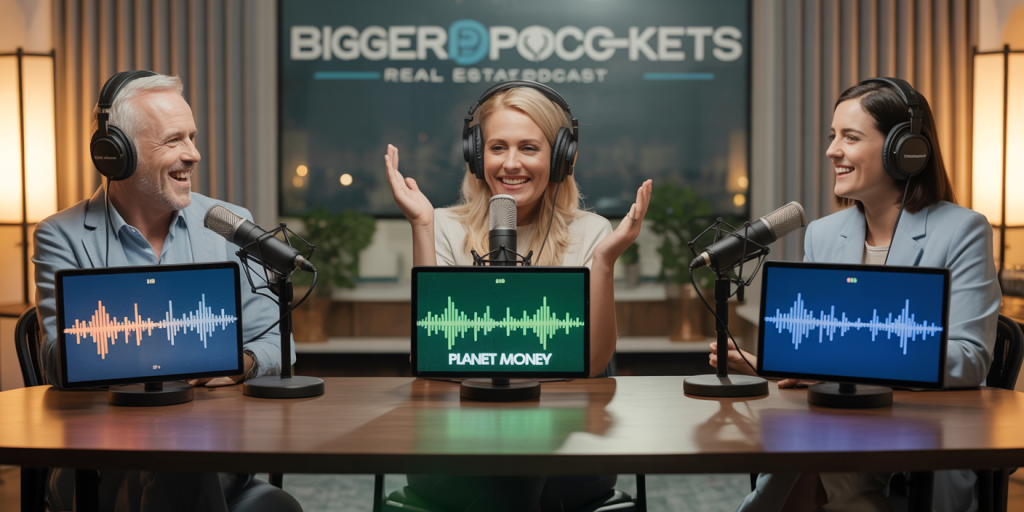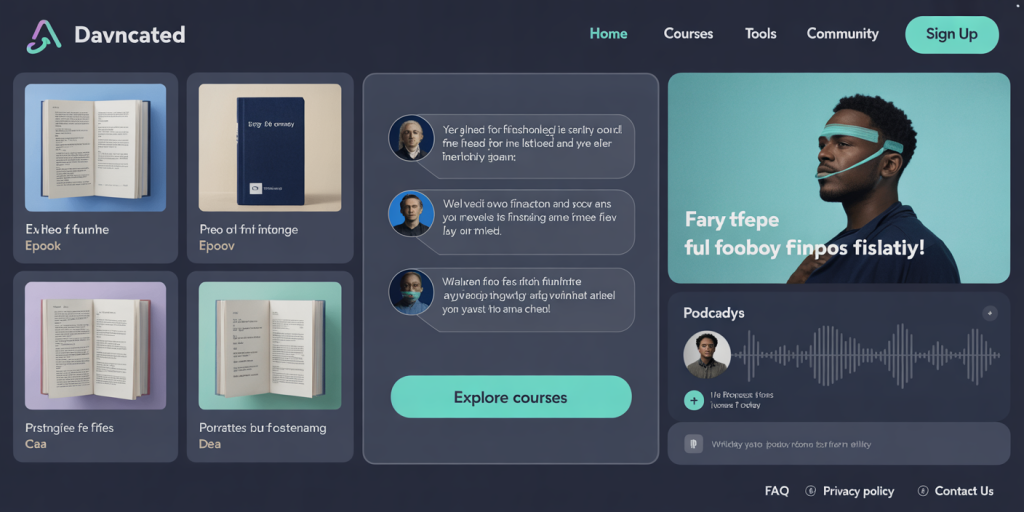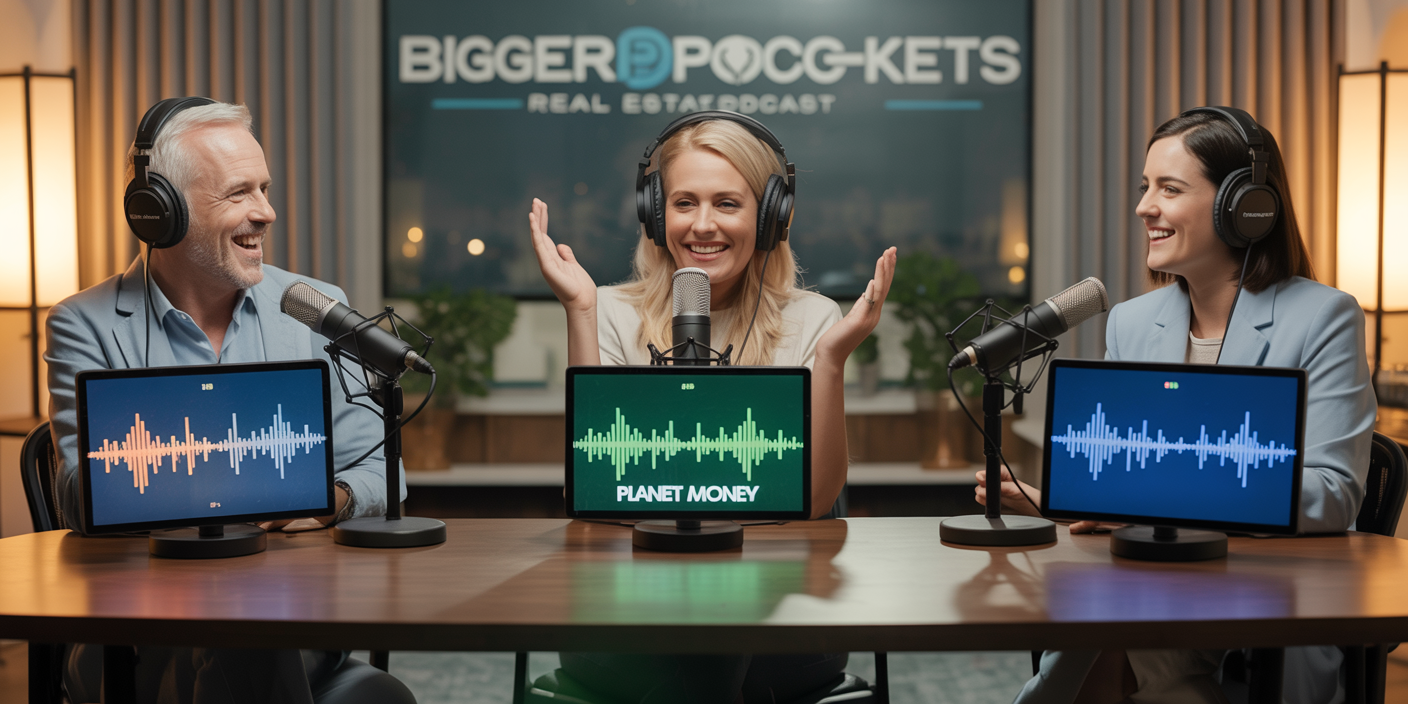Navigating the world of personal finance and investing can be overwhelming, especially with the abundance of information available today. Learning about money management, investment strategies, and economic principles is essential for financial stability and growth. Books and podcasts have emerged as two of the most accessible and enriching resources for anyone aiming to enhance their financial literacy. This article explores some of the best books and podcasts to learn about money, providing comparative insights, practical examples, and future outlooks for financial education.

Understanding the Importance of Financial Literacy
Financial literacy is the foundation for making informed decisions about budgeting, saving, investing, and retirement planning. According to a study by the FINRA Investor Education Foundation, nearly two-thirds of Americans demonstrated low financial literacy, correlating gaps in knowledge with harmful financial outcomes, such as inadequate retirement savings and higher debt levels. Consequently, mastering money management is not just a personal benefit but also a societal necessity.

Books and podcasts serve different but complementary roles in financial education. While books offer in-depth analyses supported by data and case studies, podcasts provide ongoing updates, interviews, and engaging discussions accessible on-the-go. For example, reading “The Intelligent Investor” can deliver deep lessons in investing principles, whereas listening to episodes from “Planet Money” can help listeners understand economic news with practical relevance to their daily lives.
Top Books for Mastering Money Management and Investment
Several seminal books have stood the test of time in teaching money concepts effectively.
“The Richest Man in Babylon” by George S. Clason
This classic book uses parables set in ancient Babylon to teach timeless lessons on saving, investing, and wealth building. Its practical advice such as “pay yourself first” translates well into today’s context. For example, the story of Arkad, Babylon’s richest man, shows how disciplined saving and prudent investments can lead to wealth accumulation. The simplicity of its narrative makes it accessible to all financial literacy levels.
“Rich Dad Poor Dad” by Robert T. Kiyosaki
Kiyosaki contrasts two differing mindsets toward money: that of his “rich dad” emphasizing financial education and investing, versus the “poor dad” focused on traditional employment and job security. This book is influential for inspiring readers to view assets, liabilities, and cash flow differently. Real-life examples, such as buying rental properties or investing in small businesses, make these concepts tangible. Kiyosaki’s approach helps break down barriers to understanding investments for beginners.
“The Intelligent Investor” by Benjamin Graham
Widely regarded as the bible of value investing, this book provides rigorous techniques for analyzing stocks and bonds to minimize risk while maximizing returns. Graham’s concept of “margin of safety” is vital for investors to safeguard against market volatility. Legendary investor Warren Buffett credited this book as foundational to his success. Although more technical than the previous titles, it remains essential for anyone serious about investing.
Comparative Overview: Best Books for Money Education
| Book Title | Best For | Core Concept | Practical Example | Difficulty Level |
|---|---|---|---|---|
| The Richest Man in Babylon | Beginners | Saving and wealth habits | Pay yourself first method | Easy |
| Rich Dad Poor Dad | Intermediate learners | Financial mindset shift | Asset vs liability clarity | Moderate |
| The Intelligent Investor | Advanced investors | Value investing principles | Margin of safety | Challenging |
Engaging Podcasts That Simplify Complex Financial Concepts
Podcasts have grown exponentially with the rise of smartphones, offering bite-sized or in-depth audio content perfect for learning anytime, anywhere.
“The Dave Ramsey Show”
Dave Ramsey is a well-known financial advisor who preaches debt-free living and aggressive saving. His podcast covers practical money tips, such as budgeting advice through his “Baby Steps” approach and anecdotal success stories from everyday people overcoming financial challenges. Ramsey’s no-nonsense style appeals particularly to those seeking help tackling debt or building emergency funds.
“Planet Money” by NPR
This podcast uniquely blends storytelling and economics to explain how money works on global and personal scales. For instance, episodes breaking down the 2008 financial crisis or the mechanics behind cryptocurrency demystify complicated subjects, supported by expert interviews and data analysis. Its weekly format keeps listeners updated with relevant, real-time financial events.
“BiggerPockets Real Estate Podcast”
Real estate investment enthusiasts and beginners alike find value in this podcast, which features experienced investors sharing actionable tips on property acquisition, financing, and management. Episodes often explore live case studies where investors discuss their successes or mistakes, offering concrete lessons. According to the National Association of Realtors, real estate is a primary source of wealth for many Americans, making this podcast a practical education resource.
Comparative Table: Leading Finance Podcasts
| Podcast Name | Focus Area | Typical Content Types | Ideal Audience | Update Frequency |
|---|---|---|---|---|
| The Dave Ramsey Show | Debt elimination & budgeting | Call-ins, expert tips, stories | Beginners & debt payers | Daily |
| Planet Money | Economics & money stories | Narrative episodes, interviews | General & intermediate | Weekly |
| BiggerPockets | Real estate investing | Case studies, interviews | Investors & real estate novices | Weekly |
How Books and Podcasts Complement Each Other in Financial Learning

While books provide fundamental frameworks and detailed knowledge, podcasts supply real-time examples and cultural perspectives. For instance, a reader who completes “The Intelligent Investor” may find it useful to listen to episodes from “Planet Money” discussing recent market trends or regulatory changes impacting value investing. Similarly, someone inspired by “Rich Dad Poor Dad” could benefit from “BiggerPockets” podcasts for real estate investment practicalities.
Using both media enhances retention through varied learning styles. Books offer structured theory, which listeners can then augment with the conversational tone and dynamic stories found in podcasts. Recent studies in educational psychology indicate that multimodal learning—engaging both auditory and visual processing—heightens comprehension and long-term recall, a major advantage in complex subjects like finance.
Practical Applications and Real-Life Impact of Financial Media
The success stories frequently highlighted within these books and podcasts serve to motivate and clarify abstract concepts. Take, for example, the tale of Sarah, a single mother who applied the “pay yourself first” principle from *The Richest Man in Babylon* and Ramsey’s budgeting techniques to eliminate $15,000 in debt over two years. She further used insights from *BiggerPockets* to invest in a duplex that generated passive income, allowing her financial independence.
Similarly, many listeners of *Planet Money* report a heightened awareness of economic cycles that influence investment opportunities and personal spending habits. Some have adjusted their retirement planning strategies after understanding inflation risks and diversification, topics frequently covered in these podcasts.
Looking Ahead: The Future of Financial Education Through Books and Podcasts
As digital technology continues to evolve, the ways in which people learn about money will expand and become increasingly personalized. Interactive e-books and audiobooks enhanced with real-time data visuals will likely make learning more immersive. Artificial intelligence may provide tailored recommendations on financial topics adjusted to an individual’s income, risk tolerance, and goals.
Podcasts are expected to grow by incorporating live Q&A sessions and integration with mobile financial tools, promoting active participation. Furthermore, the rise in global financial inclusion means content creators will need to adapt materials to diverse audiences with varying economic contexts.
In the near future, combining financial literacy with behavioral economics and mental health content could address the emotional and psychological barriers to money management, offering a holistic approach. For example, a podcast episode might pair lessons on budgeting with advice on managing money anxiety, thus improving both knowledge and well-being.
Companies and educators are already collaborating to produce multilingual, culturally relevant financial podcasts and books, breaking barriers across socioeconomic groups. This democratization of financial knowledge can help close the wealth gap—empowering everyone from young adults to retirees.
Empowering yourself with the best money management resources—whether books or podcasts—can transform your financial future. By incorporating timeless wisdom from classics like *The Richest Man in Babylon*, adopting practical modern strategies from Dave Ramsey, or staying informed through *Planet Money* and *BiggerPockets*, you gain both the knowledge and confidence needed to build lasting wealth. The journey toward financial literacy is continuous, and leveraging these resources equips you to navigate the complexities of money with clarity and skill.

Deixe um comentário